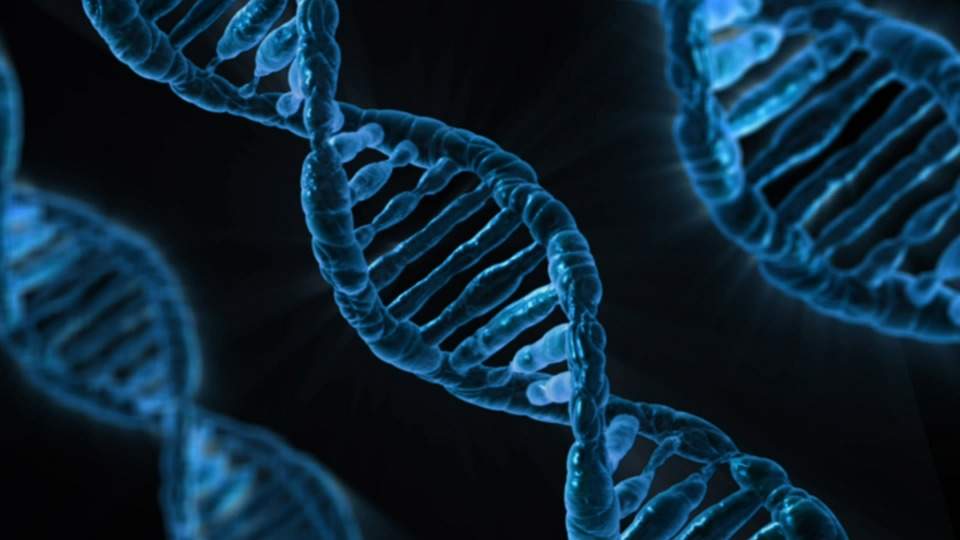DNA censor can play critical role in cancer immunotherapy, says Study
Fri 25 Aug 2017, 23:04:20

Washington D.C. [USA] : In a recent research, a team of scientists have found that tumors stressed by cancer immunotherapy release their mitochondrial DNA into nearby immune cells, triggering a host alert system.
That chemical alarm via the molecule cGAS is an important immune-system sensor for DNA that is in the soupy interior of cells, the cytosol, where DNA should not exist.
The current study indicates that cGAS plays a critical role in bridging the body's two immune systems: the innate immune system, which senses initial threats; and the adaptive immune system, which in this context specifically amplifies the anti-tumor response after getting the alert from the innate immune system.
Generally, the adaptive system battles recurring threats from pathogens.
These findings could lead to strategies to make a new anti-cancer treatment called immune checkpoint blockade therapy more effective -- a critical need, said Dr. Yang-Xin Fu, Professor of Pathology and Immunology and senior author of the study.
Checkpoints are molecular barriers that cancer cells produce to make themselves undetectable to the immune system. The immunotherapy aims to bring those cancer cells back into view, he explained.
Current immune checkpoint blockade therapy has been life-extending for many people, such as former President Jimmy Carter, who in early 2016 reported remission of melanoma that had spread to his liver and brain.
Despite dramatic responses in some people, many other patients show no response to the immunotherapy, sparking the search for new therapies that target an entirely different type of checkpoint, such as the experimental drug used in this study.
The drug targets CD47, a cell surface protein highly expressed in some tumor cells. CD47 sends a "Do not eat me" signal to block immune cells from killing the cancer cells, said Dr. Fu, who holds the Mary Nell and Ralph B. Rogers Professorship in Immunology and also is a member of the Harold C. Simmons Comprehensive Cancer Center at UT Southwestern.
The laboratories of Drs. Fu and Chen have been working on strategies to make immune checkpoint blockade therapy more effective. Dr. Chen's work showing the importance of cGAS as an innate immune sensor of DNA led to speculation that inhibition of cytosolic DNA sensing could
represent a strategy tumor cells use to evade the immune system, the researchers shared.
represent a strategy tumor cells use to evade the immune system, the researchers shared.
"CD47 is found in every cell of the body, and it has long been known that many kinds of cancer cells produce even higher amounts of CD47 than do healthy cells. That 'Do not eat me' signal helps cancer cells evade detection from the immune system's killer T-cells," noted Dr. Fu.
In fact, the higher the levels of CD47 found in tumors, the poorer the prognosis for many cancers, he added.
In tests on mouse cells, the researchers found that when cancer cells are stressed by an experimental anti-CD47 immunotherapy, the cancer cells leak DNA into nearby dendritic cells, which present antigens to killer T-cells and are considered a bridge between the innate and adaptive immune systems.
The DNA sensor cGAS sounds the alarm inside those dendritic cells, setting off a signaling cascade that alerts the immune system and unleashes the cancer-killing T-cells, Dr. Fu said.
The function of cGAS in the immune response to bacterial and viral infection is well-established. A study from the Chen laboratory published early this year showed that cGAS is essential for cancer immunotherapy by immune checkpoint blockade.
However, the identity of the DNA in the cancer cells that triggers the anti-tumor immune response was unclear, the researchers said.
Surprisingly, Dr. Fu and colleagues discovered that the triggering DNA comes from the mitochondria of the cancer cells, the so-called energy factories within cells, rather than in the nuclei, where most DNA is stored, Dr. Fu shared.
"Tumor-originated mtDNA was recognized by the DNA sensor cGAS in dendritic cells during anti-CD47 treatment. Furthermore, we found that the cGAS-STING-IRF3 signaling pathway plays a critical role to drive robust innate and adaptive immune response upon anti-CD47 therapy," noted Dr. Fu.
Understanding this novel mechanism of anti-CD47 therapy may make it possible to design new combination strategies to improve current immune checkpoint blockade therapies by modulating the innate sensing of mtDNA.
In addition, this mechanism of releasing mtDNA under stress may apply to many other pathological and pharmacologic conditions, he added.
The study was published in Journal Immunity.
No Comments For This Post, Be first to write a Comment.
Most viewed from Health
AIMIM News
Latest Urdu News
Most Viewed
May 26, 2020
Do you think Canada-India relations will improve under New PM Mark Carney?
Latest Videos View All
Like Us
Home
About Us
Advertise With Us
All Polls
Epaper Archives
Privacy Policy
Contact Us
Download Etemaad App
© 2025 Etemaad Daily News, All Rights Reserved.






























